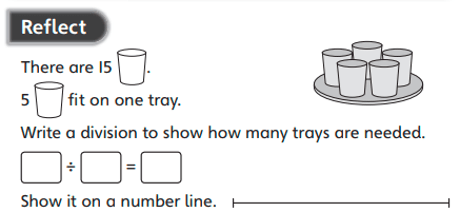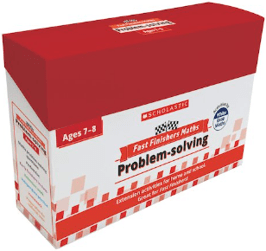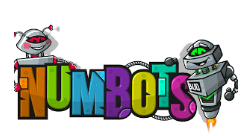In Mathematics, we are committed to ensuring that children are knowledgeable, skilled and ready for the next phase of their education. We focus on procedural fluency alongside conceptual understanding to ensure that the children can continue to build new knowledge as they move through the next phase in their education.
Approach:
We follow the ‘Power Maths’ scheme which is a whole-class mastery programme designed to spark curiosity and excitement to help nurture confidence in maths. The scheme helps to build progression across the school, and consistency of images, models and language. It is an enriched approach, with White Rose Materials at its heart, that combines interactive teaching tools and high-quality textbooks. It is written by leading mastery experts, and is recommended by the DFE.
The expectation is that the majority of children will move through the scheme at around the same pace. Pupils who grasp concepts rapidly are challenged through deepening activities. Focus children who are not sufficiently fluent with the materials taught are supported during lessons to consolidate their understanding. For children working significantly behind age related expectations, we follow an alternative scheme suited to their needs, which links with White Rose Maths and mastery style activities. The Maths Leader uses data and knowledge of the children to carefully select the which children need which curricula.
Alongside ‘Power maths’, children take regular ‘Assertive Mentoring’ skills checks. These help to identify what a child can do, and what they need to do to make progress. This helps to develop procedural fluency and enable concepts and knowledge to be stored in the long-term memory (know more, remember more). The low stakes testing element also supports progress.
We provide opportunities for children to develop their declarative facts, recall of number / multiplication / division facts through subscriptions to TT Rockstars and Numbots.

POWER MATHS
Power maths lessons follow a consistent format across the school based heavily on Instructional Teaching Principles.
The Power Maths teaching model:
The curriculum is broken down into core concepts, taught in units e.g. addition and subtraction, multiplication and division, shape, statistics etc.
Each unit is then divided into small learning steps – lessons
Each lesson is sequenced in the same format:
Power Up – Discover – Share – Think Together – Practice – Reflect

POWER UP!
We begin each maths lesson with a ‘Power Up’ activity designed to support fluency in all key number facts (this is sometimes substituted with a Tough Ten activity)
Power Ups reinforce the two key things that are essential for success: times tables and number bonds

The ‘Discover’ part of the lesson kicks off the core concept being taught in the lesson.
It is a practical real-life problem that the children work in pairs to try to solve. It is encouraged that children use concrete objects during this part of the lesson and gives them time to play, explore and discuss possible strategies
Share
The ‘Share’ section allows the children to share and celebrate their solutions and strategies that they used to solve the problem from the ‘Discover’ section.
The online toolkit shows how the concrete apparatus that the children used to explore the math concept, can then be explored using pictures.
‘Share’ is the “seeing” stage. It encourages the children to make a mental connection between the physical object they just handled and the abstract pictures, diagrams or models that represent the objects from the problem.
Think Together
This section of the lesson allows children to explore new problems using the mathematical strategies they have learnt from the ‘Share’ section.
The questions promote child independence and an ‘I can’ attitude by following an ‘I do, We do, You do approach’
Practice
The children have their own practice book and they work independently, following the same learning that has been explored through the ‘Discover’, ‘Share’, ‘Think Together’ sections.
The questions in the practice book follow small steps of progression in order to deepen their learning.

Reflect

This section allows the teacher the opportunity to check children’s understanding and how deeply the children have understood the maths concept being taught.
Fast Finisher Maths
Pupils who grasp concepts rapidly are challenged through rich and sophisticated problems. Each year group uses Fast Finishers: White Rose Problem-solving. These problems further develop mastery of a variety of maths topics.



Assertive Mentoring
Alongside ‘Power maths’, children take regular ‘Assertive Mentoring’ skills checks. These help to identify what a child can do, and what they need to do to make progress. This helps to develop procedural fluency and enable concepts and knowledge to be stored in the long-term memory (know more, remember more). The low stakes testing element also supports progress.

Assertive Mentoring is used as an assessment
- to raise standards for all
- to motivate and involve children in their learning
During the Autumn Term, children at North Mead complete column 1 (number). During the Spring and Summer terms, children at North Mead complete all three columns of the skills check including column 2 (fractions and decimals) and column 3 (shape, space and measure).
Times Tables Rock Stars (TTRS) is a carefully sequenced programme of daily times tables practice aimed at schools, families and tutors. It has successfully boosted times tables recall speed for millions of pupils around the world over, and this is true at North Mead Primary Academy. Teachers provide time for children to practice multiplication tables regularly in school, and children can also access their account at home. Teachers are able to use a variety of assessment tools and graphics to carefully set targeted multiplications for individual children to practice.


Subject Leader/s
Mrs H Hopfl
Impact
You may be aware that there is a new test for year 4 children called the “Multiplication Tables Check”. Here’s what you need to know:
We’re not worried. Under the national curriculum primary school children are expected to know their 12 times tables by the end of Year 4. So we’ve been preparing students to know their times tables by the end of Year 4 for quite some time now and are not concerned about the check at all.
The check itself:
- will take place in the summer term in June.
- is done online using a computer or tablet.
- can be done one student at a time, in groups or as a class.
- will take no longer than 5 minutes.
- will feature 25 questions and children will have 6 seconds to answer each question.
- There’s no problem solving or division just simple “3 x 4 = ?” type questions
The results are for the teachers. There is no pass or fail mark. The results of the test are not published publicly, they’re not going to end up on a league table and they’re not to be concerned about. The results are for us teachers to use so we can provide an even better education!
No Stress! I am sure that along with you, we do not want our students worried or stressed about the check. The Government has called it a “check” rather than a “test” or “exam” for a reason. We will endeavour not to draw students’ attention to the check so will be not be referencing in class unduly. Please be supportive of this approach and refrain from talking about the checks at home.
Practise at Home: Because maths is such a big subject, and we will of course continue to teach the full curriculum, we will need your continued support to help practise the times tables with your children. Some easy ways to do this include:
- Asking questions such as “What’s 7 x 8?”
- Reciting times tables by rote (4 times 1 is 4, 4 times 2 is 8, etc)
- Using apps and games such as TTRockstars and Numbots
- Singing times tables songs (there are loads online)
Why do we learn the times tables? In primary school, times tables knowledge is vital for quick mental maths calculations and problem solving, as well as for many of the topics children learn in years 5 and 6 (division, fractions, percentages).
Maths Web links
Times Tables Rock Stars (ttrockstars.com)



